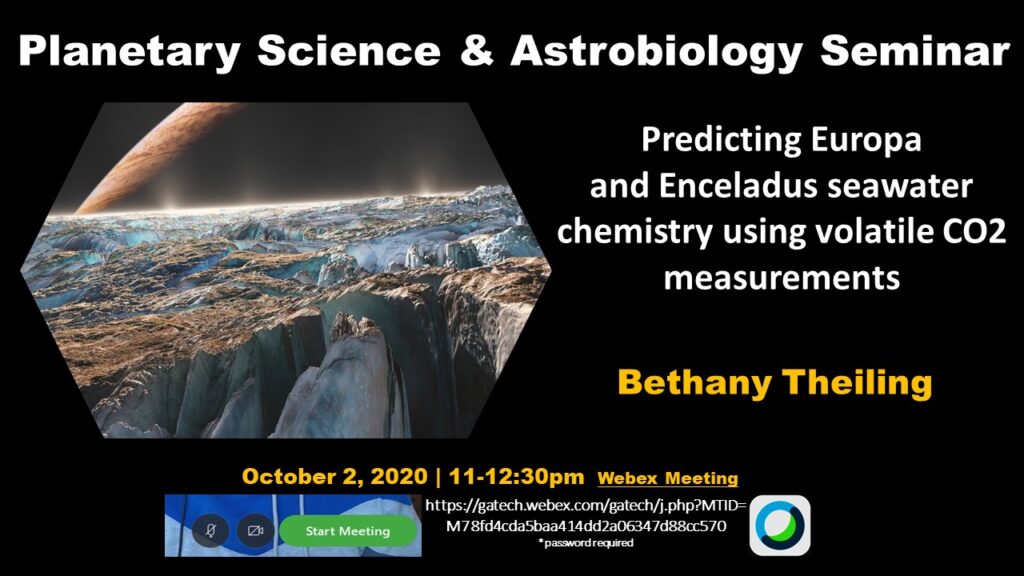
The Europa Clipper mission will be able to measure volatile CO2 isotopes of Europa’s plumes and exosphere—but what can those measurements tell us about the surface ice or subsurface ocean? Our laboratory experiments interact an initial gaseous CO2 (that may be sourced from water-rock interactions at the seafloor) with various seawaters, and measure the resulting CO2 to determine what changes take place as a result of this interaction. Isotopes of CO2 from low pH systems do not show a substantial change for carbon, suggesting that carbon isotopes from a low pH Europa will reflect the original CO2.
However, alkaline (high pH) systems similar to Enceladus or a high-pH Europa show a large variability in carbon isotopes that is due to varying carbonate speciation. We use our laboratory spectra as a ‘training’ dataset for machine learning. Our preliminary work demonstrates that ‘supervised’ training of metadata and data from these spectra form clusters based on the concentration of CO2 and the composition of the seawater, and is therefore promising for future interpretation of CO2 mass spectra using predictive algorithms.
